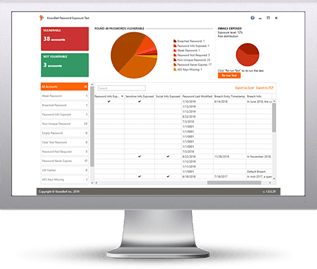
The latest iteration of notable banking trojan, Trickbot, now includes a password grabbing module designed to provide cybercriminals with remote access to internal systems.
One of the goals of any attacker intent on moving laterally within your network is to first gain access to an endpoint. A new variant of Trickbot is making this easier for cybercriminals by automatically grabbing credentials from three well-known remote access solutions. It should be noted this is a update to the passwordgrabber that has been seen in the wild in Trickbot, which has been known to grab passwords from Microsoft Outlook and a slew of popular web browsers.
But, it’s this latest version that takes password grabbing to the next level. According to a deep dive article from AV vendor, TrendMicro, Trickbot’s newest version of the password grabber subroutine grabs passwords from Virtual Network Computing (VNC), PuTTY, and Microsoft’s Remote Desktop Protocol (RDP) connections.
We’ve seen a focus by cybercriminals on remote desktop credentials in the past – from ransomware variants offering to decrypt in exchange for credentials, to paying for credentials outright on the dark web. So, this new trojan is particularly disturbing.
Organizations need to realize the potential damage that can be done when a cybercriminal has complete unfettered access to the desktop of one or more of your endpoints. The need to stop all malware (including these kinds of trojans) is critical.
The most effective way to stop malware infection is through Security Awareness Training.Leveraging the user as part of your security strategy, this training elevates the user’s understanding of malware-based attacks, how they are delivered, and how to spot suspicious links and attachments before becoming a victim.
 Here's how the Password Exposure Check works:
Here's how the Password Exposure Check works:




